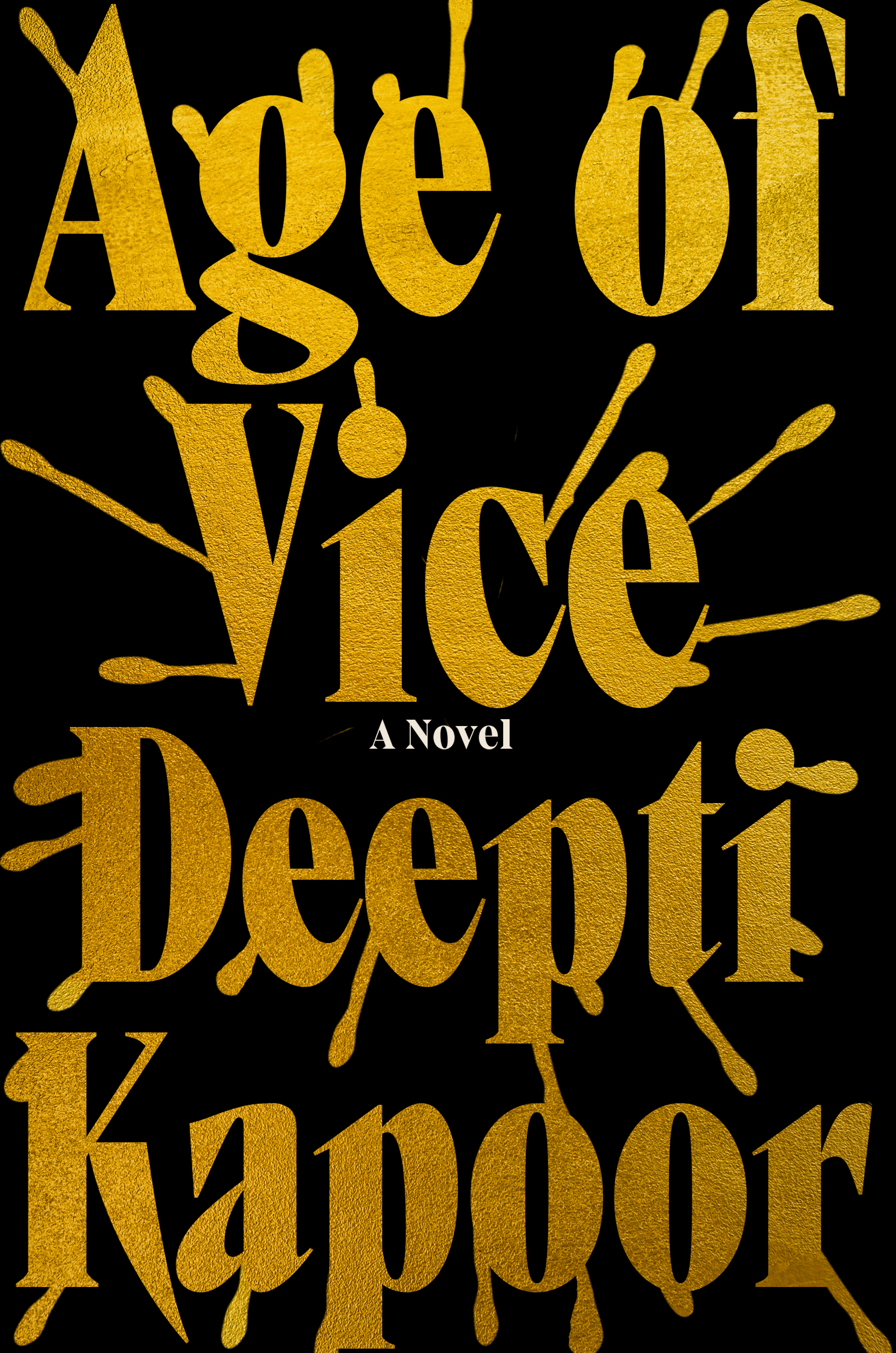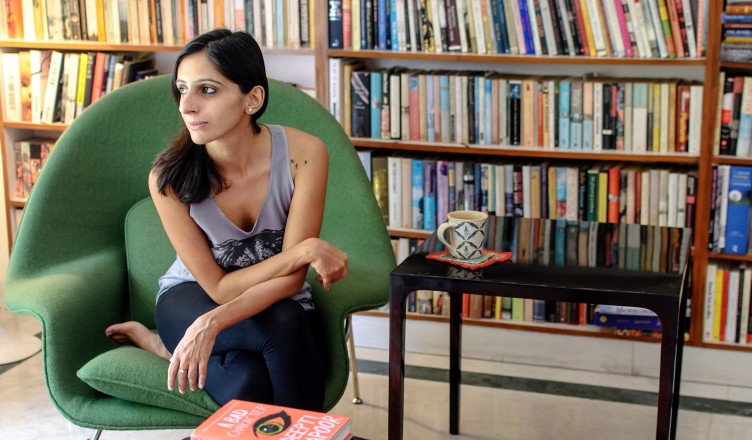Published June 5th, 2023
Review
by Hantian Zhang
In my imagination, India has always been a place of contradictions: democracy and caste, wealth and poverty, Santiniketan and Bhopal. Such myriad contradictions naturally inspire novelists, given their professional penchant for tension, suspense, and irony. Throwing in a plot of picaresque struggle, father-son conflict, and ill-fated romance on top of all the contradictions that are contemporary India, Age of Vice (2023) is a feat of polyphonic storytelling that zeros in on a few conflicted souls at a time felt like Kali Yuga, the Hindu cycle era of decadence or “the losing age, the age of vice.”
In this 548-page literary thriller, the Indian journalist-turned-author Deepti Kapoor tells the interconnected life stories of three protagonists against the backdrop of the Wadia Group, a fearful crime syndicate with powerful state connections. The first protagonist we meet is Ajay, a low-caste boy born into privation and sold into slavery at nine. He works his way up to become the valet and bodyguard of the Group’s scion, Sunny Wadia, who entrusts him with killing missions but also sacrifices him to take the blame for a traffic accident. Neda—who we meet through Ajay and then get to inhabit her mind in the second part of the book—is an investigative journalist torn by her career imperative to expose the Group’s crimes and her love for Sunny. Sunny, the heir apparent who has not yet proven his ruthlessness, is caught between his idealism and desire for rebellion against his family. All three’s struggles flare up at Sunny’s opulent wedding banquet, prompting each to take a new perspective on their lives.
Released only months back in January 2023, Age of Vice has already caused a stir among literary circles. Its bestseller status bespeaks its success as commercial fiction: creating a fictional world that engages the audience. The book achieves this primarily through its plot. The grotesque traffic crash that opens the book immediately grasps the audience, and the following violence behind the prison walls only heightens the intrigue. Ajay’s backstory, where a goat dispute leads to his father’s death and his sister being raped and he himself being sold into slavery, is so out of the audience’s everyday experience that curiosity, adrenaline, and indignation join forces to hasten the page-turning. The Sunny-Neda relationship accommodates less of such an extraordinary turn of events, but the thrill of following Neda to get deeper involved with the powerful family, the uncertainty of the relationship, and the empathetic sense of being under constant watch maintain the tension. Beyond the high-concept plot on the scale of the whole book, minor twists or tangents, such as the robbery that delays Ajay’s reconnection with Sunny in Delhi and the moment when Eli accelerates his car toward a hapless vendor for entertainment, inject the same mix in smaller doses here and there, holding the eye and turning the page to the same effect.

The plot’s page-turning impact is only enhanced by Kapoor’s command of language. Qualities that stand out include concision and musicality, which gives the novel a literary bent like in the following sentences:
She conjures Delhi in the late winter. Crisp air, thin blue skies, a lazy mist bathing the lawns under the pale morning sun.
And it hits him, the panic attack he has been fighting all day, all week, all month. The panic of years. The loneliness of a lifetime. The rage. The knowledge that tonight, it is happening. It is most definitely happening.
Such a poetic voice runs throughout the book, but the tone change is noticeable whenever we switch from one viewpoint character to another. The Ajay chapters consist of shorter, powerful sentences that create a sense of action, while in the Neda chapters, the pacing slows down, and the more extended, meandering stream of consciousness allows the reader to inhabit her mind. Her interiority consequentially feels most genuine, rendering the impression that the author speaks from her own female journalist identity from time to time.
Polyphony is another asset of the novel. Through this structural choice, we not only understand each protagonist’s backstory from a close third-person point-of-view, but also see how their paths cross and how each is perceived by the other. In Neda’s case, we first get to know her from the point-of-view of Ajay, where she is mystery-clad and crosses paths with Sunny quite arbitrarily. Who is she? What’s going to happen between her and Sunny? The reader is already thirsty for answers. Then, in the second part of the book, such questions are addressed one by one. Afterward, a confessional email to her former editor shows how Neda understands her life and relationship with Sunny. Through the three perspectives, we see not only a fuller Neda but also the strength and limitations inherent in each view.

Speaking of limitations, the book’s plot twists occasionally could appear jarring, as the long first-person address by Sunny’s kidnapper could appear out of character, given the contrast between his eloquence and his Lumpenproletariat background. While Kapoor’s imagination of the lives of Ajay, Sunny, and Neda is reflected in minute details, her shying away from inhabiting the perspective of Bunty Wadia (the don of the Group and Sunny’s father) reduces him to the cliché of an authoritarian father-cum-well-connected criminal. Finally, by focusing on only the bad of India and only the good of the West—plus by describing the Indian aspiration to be like the West—the book misses a critical, postcolonial edge that in fact has an Indian origin, and as a result, it sometimes risks slipping toward Orientalist tropes.
Limitations aside, Age of Vice distinguishes itself by its engaging plot, poetic language, and multi-voiced storytelling. Little surprise that FX Studio is developing it into a major TV series. That would be a suitable medium, but putting down the book, I feel I have already binge-watched it, the characters so vividly animated by Kapoor’s words.
Nationality: Chinese
First Language(s): Chinese
Second Language(s):
English
Supported by:


Comments on "Kali Yuga Thriller — A Review of Deepti Kapoor’s "Age of Vice""
Please log in to submit a comment.
Login